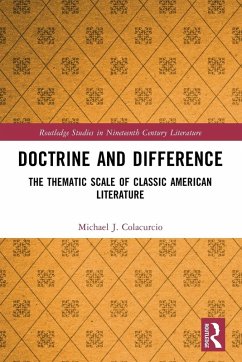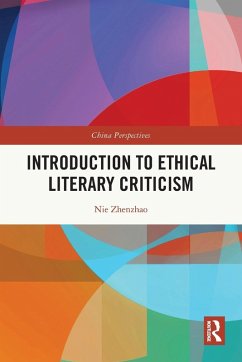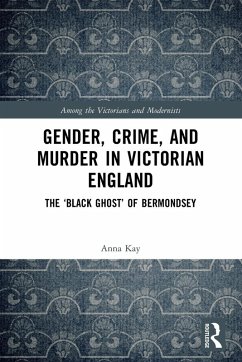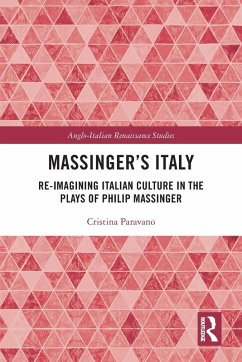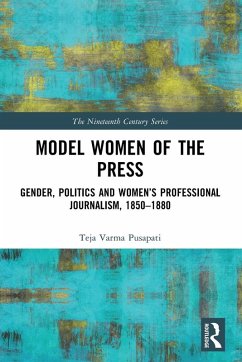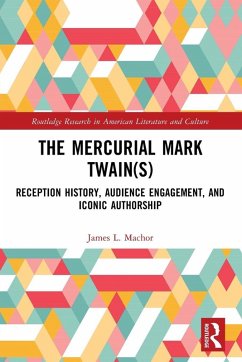Li Ou
Broschiertes Buch
Keats and Scepticism
Versandkostenfrei!
Versandfertig in 1-2 Wochen
Weitere Ausgaben:

PAYBACK Punkte
28 °P sammeln!





Keats and Scepticism explores Keats's affinity with the philosophical tradition of scepticism and reads Keats's poetry anew in the light of this affinity.
Li Ou, PhD in English (Literary Studies), the Chinese University of Hong Kong, is Associate Professor in the Department of English, the Chinese University of Hong Kong. She is the author of Keats and Negative Capability (2009), 'Keats, Sextus Empiricus, and Medicine' (Romanticism 22:2 (2016), 167-76), 'Keats's Afterlife in Twentieth-Century China' (English Romanticism in East Asia: A Romantic Circles PRAXIS Volume, 2016), 'Romantic, Rebel, and Reactionary: The Metamorphosis of Byron in Twentieth-Century China' (British Romanticism in Asia, 2019), 'Two Chinese Wordsworths: The Reception of Wordsworth in Twentieth-Century China' ( Romantic Legacies: Transnational and Transdisciplinary Contexts, Routledge, 2019), and 'Keats, Montaigne, and Hamlet' (East-West Dialogues: The Transferability of Concepts in the Humanities, 2021). Her research interests include Romantic poetry, especially that of Keats, and cultural/literary relations between Greater China and Britain.
Produktdetails
- Verlag: Routledge
- Seitenzahl: 232
- Erscheinungstermin: 28. November 2024
- Englisch
- Abmessung: 229mm x 152mm x 13mm
- Gewicht: 343g
- ISBN-13: 9781032258751
- ISBN-10: 1032258756
- Artikelnr.: 71910469
Herstellerkennzeichnung
Libri GmbH
Europaallee 1
36244 Bad Hersfeld
gpsr@libri.de
In this original and important monograph, Li Ou presents compelling evidence that Keats in his letters and poems builds upon the ancient and Enlightenment tradition of scepticism. This chimes with his own habitual, 'equipollent' modes of thought, tempering his 'ardent' idealism and sensuousness with intellectual doubts and 'vexing speculations'.
Robert S. White, Emeritus Professor, The University of Western Australia
A deeply researched and enjoyably accessible new study of Keats, strikingly original in its perspectives on the poet's intellectual affinity with the sceptical tradition in philosophy. The argument is complemented by fresh and insightful readings of the poetry, and underpinned by persuasive reflection on the presence of philosophical scepticism in Keats's Romantic milieu. This book changes the terms of reference for our understanding of Keats as a thinker.
Kelvin Everest, Emeritus A. C. Bradley Professor of Modern Literature, University of Liverpool
Robert S. White, Emeritus Professor, The University of Western Australia
A deeply researched and enjoyably accessible new study of Keats, strikingly original in its perspectives on the poet's intellectual affinity with the sceptical tradition in philosophy. The argument is complemented by fresh and insightful readings of the poetry, and underpinned by persuasive reflection on the presence of philosophical scepticism in Keats's Romantic milieu. This book changes the terms of reference for our understanding of Keats as a thinker.
Kelvin Everest, Emeritus A. C. Bradley Professor of Modern Literature, University of Liverpool
Für dieses Produkt wurde noch keine Bewertung abgegeben. Wir würden uns sehr freuen, wenn du die erste Bewertung schreibst!
Eine Bewertung schreiben
Eine Bewertung schreiben
Andere Kunden interessierten sich für





